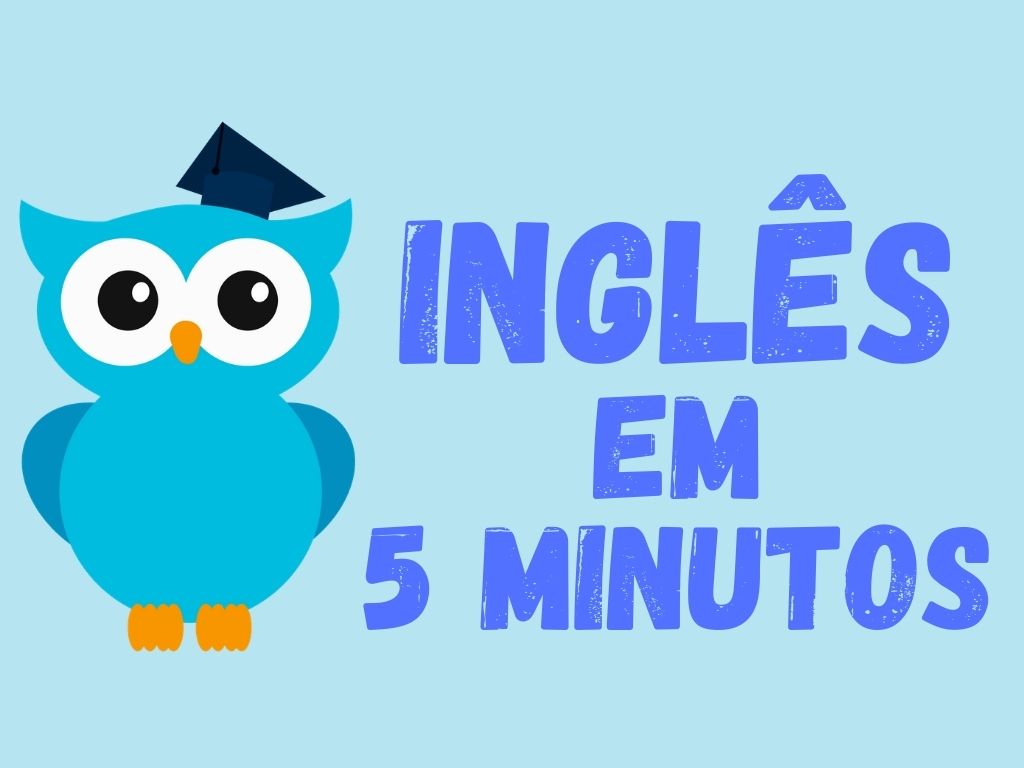How to deal with
stress!
When was the last
time you felt stressed? What did you do about it? Here are a few ways of
dealing with stress. Stress is the feeling you get when you’re under pressure.
All sorts of situations can cause stress: moving home, financial difficulties,
work overload, driving in heavy traffic, noisy neighbors, pollution,
uncertainty... So, what can we do about stress? Here are some possible
solutions.
Como
lidar com o estresse!
Quando
foi a última vez que você se sentiu estressado? O que você fez a respeito? Aqui
estão algumas maneiras de lidar com o estresse. O estresse é a sensação que
você tem quando está sob pressão. Todo o tipo de situação pode causar stress:
mudança de casa, dificuldades financeiras, sobrecarga de trabalho, condução em
trânsito intenso, vizinhos barulhentos, poluição, incerteza... Então, o que
podemos fazer em relação ao stress? Aqui estão algumas soluções possíveis.
Smile: incredibly,
your mind will often follow the lead of your body. So, if you smile, you’ll be
telling your brain that everything’s all right, and your mood will improve.
Next time you’re feeling stressed, try smiling for 10 minutes.
Sorria:
incrivelmente, sua mente muitas vezes seguirá o exemplo de seu corpo. Então, se
você sorrir, estará dizendo ao seu cérebro que está tudo bem, e seu humor
melhorará. Da próxima vez que você estiver estressado, tente sorrir por 10
minutos.
Take action: deal
with problems as soon as they pop up. For example, if you’re angry with
someone, talk about it and let them know how you feel rather than bottling it
up.
Aja:
lide com os problemas assim que eles surgirem. Por exemplo, se você está com
raiva de alguém, fale sobre isso e diga como você se sente, em vez de reprimir
a situação.
Get organized:
before leaving work at night, tidy up your desk and make a list of the things
you’re going to do the following day. When you get in early in the morning,
check over the list and make sure that you can get it all done.
Organize-se:
antes de sair do trabalho à noite, arrume sua mesa e faça uma lista das coisas
que fará no dia seguinte. Ao chegar de manhã cedo, verifique a lista e
certifique-se de que consegue fazer tudo.
Prioritize: if
you’re feeling overwhelmed by all the things you’ve got to do, make a list and
divide the tasks into “essential” and “non-essential” items. Put the
non-essential ones to one side, then deal with the essential ones one by one
until you can cross them off the list.
Priorize:
se você está se sentindo sobrecarregado com todas as coisas que tem que fazer,
faça uma lista e divida as tarefas em itens “essenciais” e “não essenciais”.
Coloque os não essenciais de lado e depois lide com os essenciais um por um até
poder riscá-los da lista.
Exercise: doing
exercise is a great way of getting your mind off things and reducing stress. Go
for a run, have a swim, spend some time in the gym, go for a walk...
Exercício:
fazer exercício é uma ótima maneira de distrair as coisas e reduzir o estresse.
Corra, nade, vá à academia, caminhe...
Relax: find some
time to really switch off: have a bath, meditate, get a massage, sweat it out
in a sauna, do some yoga...
Relaxe:
encontre um tempo para realmente se desligar: tomar banho, meditar, fazer uma
massagem, suar na sauna, fazer ioga...
Make positive
choices: read books that make you feel good and spend time with people you
enjoy being with. Avoid spending too much time on social networks or watching
TV, and stay away from negative people.
Faça
escolhas positivas: leia livros que façam você se sentir bem e passe tempo com
pessoas com quem você gosta de estar. Evite passar muito tempo nas redes
sociais ou assistindo TV e fique longe de pessoas negativas.
Get some
perspective: learn how to take things with a pinch of salt. Is the situation
really as bad as you’re making it out to be? Is the work really as urgent as
they say it is? Is it a question of life and death? Stop taking life so
seriously!
Tenha
uma perspectiva: aprenda a encarar as coisas de um jeito mais tranquilo. A
situação é realmente tão ruim quanto você imagina? O trabalho é realmente tão
urgente quanto dizem? É uma questão de vida ou morte? Pare de levar a vida tão
a sério!
Share it: don’t
keep your problems to yourself, talk about them. Chat with friends and try to
laugh about the things that have been stressing you.
Compartilhe:
não guarde seus problemas para si, fale sobre eles. Converse com amigos e tente
rir das coisas que estão estressando você.
Focus: put 100% of
your energy into the things you can change, and do your best to ignore the
things you can't. What’s the point of getting angry about the weather, the
traffic or the government?
Foco:
coloque 100% de sua energia nas coisas que você pode mudar e faça o possível
para ignorar as coisas que não pode. Qual é o sentido de ficar irritado com o
tempo, o trânsito ou o governo?
Get a pet: studies
have shown that interacting with animals is a great way of relieving stress and
tension.
Adquira
um animal de estimação: estudos mostram que interagir com animais é uma ótima
maneira de aliviar o estresse e a tensão.
Eat well: make
sure you have a healthy and balanced diet with lots of fruit and vegetables.
And avoid too much alcohol and any stimulants such as coffee.
Alimente-se
bem: certifique-se de ter uma alimentação saudável e equilibrada, com muitas
frutas e vegetais. E evite muito álcool e quaisquer estimulantes como o café.
Take up a hobby:
find some time to do something you enjoy doing: restoring old cars, building
models, gardening, salsa dancing... anything. Doing something that lets you
feel in control will help reduce the stress. Feeling better?
Crie um hobby: encontre algum tempo para fazer algo que você goste: restaurar carros antigos, construir maquetes, jardinagem, dançar salsa... qualquer coisa. Fazer algo que lhe permita sentir-se no controle ajudará a reduzir o estresse. Se sentindo melhor?
John: Erm, so I studied abroad in Spain for a while
and…
Marcie: Me too!
John: Oh, great!
Olivia: Oh, me too!
John: You guys did too?
Olivia: Hey!
John: That’s awesome – we all have that in common,
erm, but one, what I really wanted to do when I was abroad is work on improving
my spoken language [yeah], and my written language [uhhuh], my grammar, and I
found that one of the best ways to do that was to be put directly into the
environment.
Marcie: Definitely.
Olivia: So true.
John: Yeah, erm…
Marcie: For me, nothing beats spending time in the
country, living with people from that area, or people that – maybe not even
from that area, but from that country so they can just involve you in
everything they do, they can – anything they can help you, pick up new words or
just [uh-huh], even small sayings that
you say every day that you don’t realize that you use so much.
Olivia: But they form the basis of the language.
Marcie: Exactly!
Olivia: Yeah.
John: And you know what I think is great about it too,
is that when you’re taught a language in high school or in college you’re
taught the language in such a formal manner that [yeah, very formal], at times
is, is completely dead in the country [yeah], who, you know, who originated the
language.
Olivia: How many languages, how many conversations do
you have with people about, like, grammar or classic literature?
John: Yeah.
Marcie: Exactly!
John: Yeah.
Marcie: And the stuff that you had to learn about in
school you talk about – just such – you talk about such random things in your
class that you’d, would hardly even use in the outside world so I think a lot
of the stuff that you, just living in the environment, really does help – and
reading magazines from that [yeah], from where, and reading the newspaper,
watching the news [absolutely], anything you can do to…
John: Yeah, to engage yourself more…
Olivia: Surround yourself.
John: And it’s al… also, also speaking to different
age groups, as well, will really give you a different perspective.
Marcie: Definitely.
Olivia: Definitely.
John:
Erm, então estudei na Espanha por um tempo e…
Márcia:
Eu também!
João:
Ah, ótimo!
Olívia:
Ah, eu também!
John:
Vocês também?
Olívia:
Sim!
John:
Isso é incrível - todos nós temos isso em comum, mas primeiro, o que eu
realmente queria fazer quando estava no exterior era trabalhar para melhorar
minha linguagem falada [sim], e minha linguagem escrita [uhhuh], minha
gramática, e descobri que uma das melhores maneiras de fazer isso era ficar diretamente
no ambiente.
Márcia:
Definitivamente.
Olívia:
É verdade.
João:
Sim, hum...
Marcie:
Para mim, nada se compara a passar um tempo no país, convivendo com pessoas
daquela área, ou pessoas que - talvez nem mesmo daquela área, mas daquele país
para que possam envolver você em tudo o que fazem, podem – qualquer coisa pode
te ajudar, aprender novas palavras ou apenas [uh-huh], até mesmo pequenas
frases que você diz todos os dias e que não percebe que usa tanto.
Olivia:
Mas elas constituem a base da linguagem.
Márcia:
Exatamente!
Olívia:
Sim.
John:
E você sabe o que eu acho ótimo nisso também, é que quando você aprende um
idioma no ensino médio ou na faculdade, você aprende o idioma de uma maneira
tão formal que [sim, muito formal], às vezes é, está completamente morto no
país [sim], quem, você sabe, quem originou a língua.
Olivia:
Quantos idiomas, quantas conversas você tem com as pessoas sobre gramática ou
literatura clássica?
João:
Sim.
Márcia:
Exatamente!
João:
Sim.
Marcie:
E as coisas que você teve que aprender na escola você fala - exatamente isso -
você fala sobre coisas tão aleatórias em sua aula que você dificilmente usaria
no mundo exterior, então eu acho que muitas dessas coisas que você, apenas
vivendo naquele meio, realmente ajuda – e ler revistas daquele [sim], lugar, e
ler o jornal, assistir as notícias [absolutamente], qualquer coisa que você
possa fazer para…
John:
Sim, para se envolver mais…
Olivia:
Cercar-se.
John:
E é tudo... também, falar com diferentes faixas etárias também lhe dará uma perspectiva
diferente.
Márcia: Definitivamente.
Olívia: Definitivamente.

